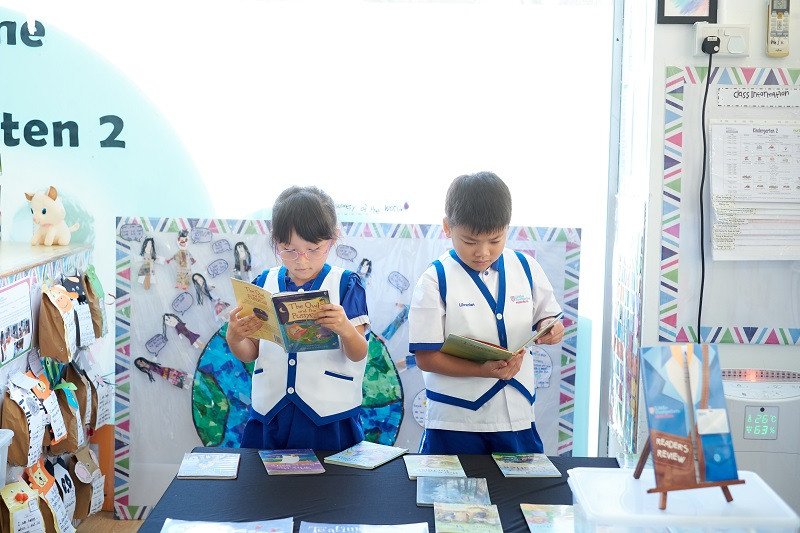
When children learn to read at an early age, they have greater general knowledge, a larger vocabulary, better concentration, and an improved attention span. Early readers also tend to be more fluent readers, and higher academic achievers because they struggle less with their studies.
The ability to read or literacy skills involve complex developmental accomplishments of your child’s attention, memory, language and motivation competencies. According to the Early Reading Framework (ERF), one of the core areas is the importance of talking in reading.
Reading and storytelling help children learn about sounds, words, and language. Hence, this helps your child develop an enjoyment and comprehension of stories by giving them lots of opportunities to listen to stories and talk about them from the earliest stages.
Best Age to Start Early Reading With Your Preschool Child
According to experts specialising in literacy education, there isn’t one age where kids can or should be reading. As young as infancy, your baby can benefit from being read to by parents or caregivers and graduate to independent reading.
“Some children are ready to learn to read at age 3, and some take much longer,” says AnnMarie Sossong, a reading specialist at Ocala Preparatory Academy in Florida. Dominic Wyse, a professor of primary education at University College London, in the UK agrees, sharing that "young children learning to read is one of the most important things primary education does. It's fundamental to children making progress in life”.
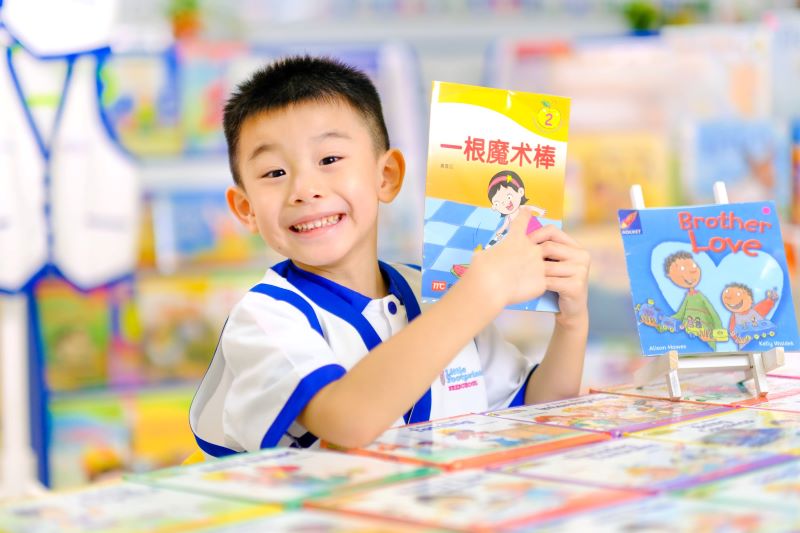
He adds that the priority should be to encourage an interest in and familiarity with words, using storybooks, songs and poems, all of which help children pick up the sounds of words, as well as expand their vocabulary.
A typical age for beginning or emerging readers is around 4 or 5 years old. During these early years, the average pre-schooler will learn pre-reading skills such as short words, start rhyming, and reading simple one-syllable words.
How Preschools in Singapore Encourage Children to Read
Many preschools introduce early reading as part of their curriculum for children in the early years. For example, Little Footprints Preschool introduces early language and literacy as part of their core programmes, as well as a specialised programme called the Librarian’s Code.
This programme is specially designed to create highly successful future readers, writers and storytellers by fostering enjoyment in quality children’s literature that is brought to life in an engaging and dynamic manner. It consists of two sub- programmes, Reader to Leader and Bond ‘thru’ Reading.
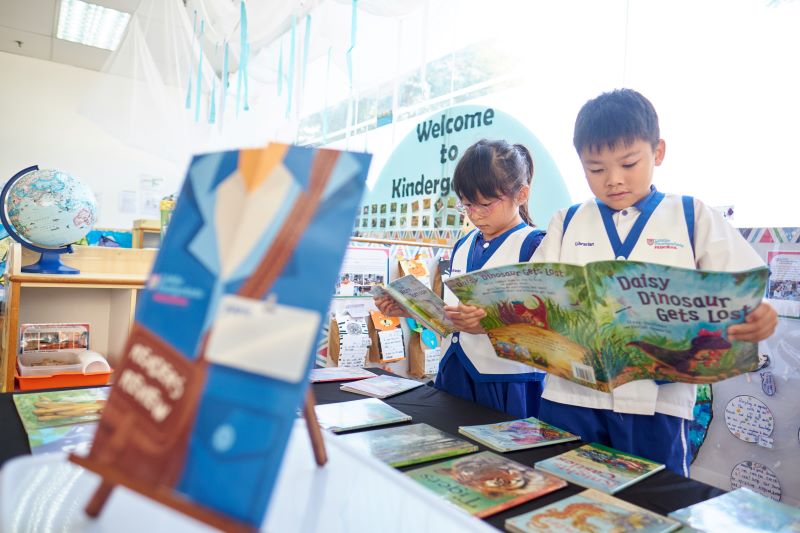
The former is designed to meet your child’s reading ability and to develop his/her confidence and interest in reading. The latter encourages children to borrow books from the school’s library and parents to spend time reading with their little ones over the weekend.
Simple Steps to Introduce Reading to Your Preschool Child
Reading promotes your baby’s brain development, encourages their language and emotional fortitude and fosters imagination and creativity.
We put together a quick list to help you get started with introducing reading to your child in the early years at home.
1. Sing songs and recite nursery rhymes to build phonemic awareness. It is also a fun and playful way to engage your child in the foundations of reading.
2. Paste simple word cards at home. This simple activity invites your child to identify objects, build essential phonics and start decoding sounds each letter makes.
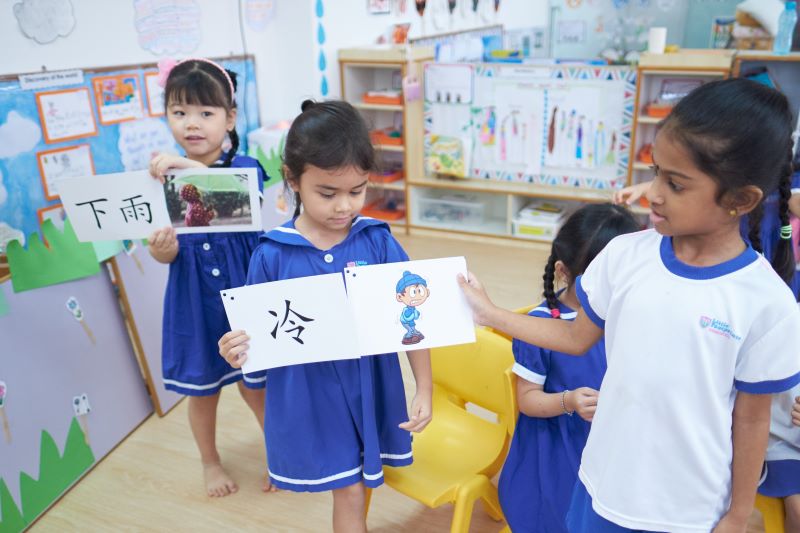
3. Play word games at home or on car rides to encourage your child to listen, identify and manipulate sounds in words. Examples of these questions are: “What sound does the word_____ end with?” or What word rhymes with _______?”
4. Play with letter magnets. Stick them on the fridge or on a metal surface in the playroom. Practice vowel sounds and other words with your child.
5. Use the power of technology to keep your child engaged. Programmes such as ABC Reading Eggs or Sesame Street are great for educational entertainment.
6. Prioritise reading daily and regularly. Set aside some time for reading. It could be before bedtime or on Sunday mornings.
7. Read aloud to your young child. This will help them recognise sight words and remember the sounds the words make.
8. Choose stories that reflect your child’s own lives and experiences. This will enable them to understand the experiences of others.
9. Ensure multiple readings of stories. This is how children fell in love with certain stories they enjoy.
10. Have them tell you a “story”. Switch it up and let the little one “read” to you.
Book a tour with Us!
Find out more about our “Librarian’s Code” – Reader to Leader and Bond Thru Reading programmes and how they will help advance your child’s early years of reading by visiting us at your preferred Little Footprints Preschool centre.
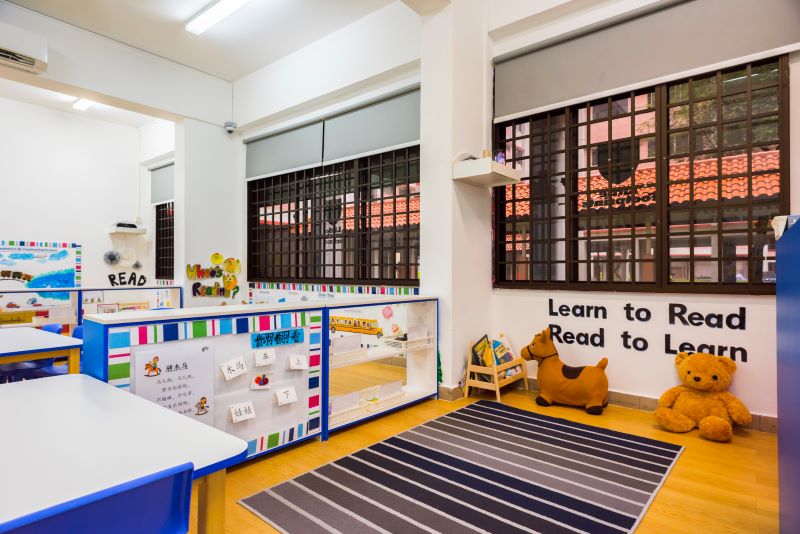
We have centres island-wide. Book a tour today at the centre most convenient for you and let us be a part of your child’s early childhood education journey.
Follow us on social media to stay updated on our latest updates and happenings:




